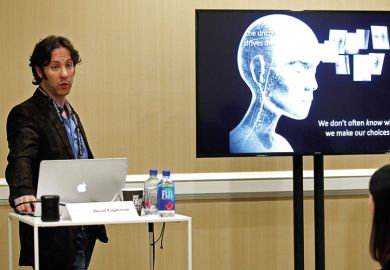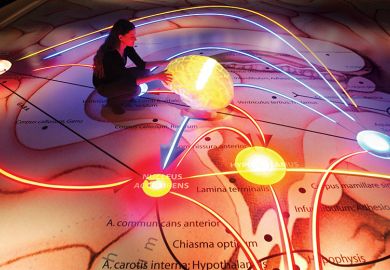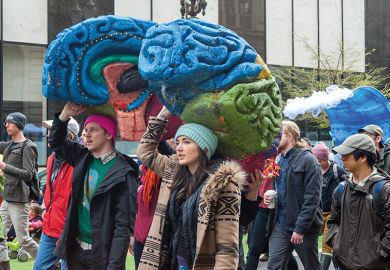An international best-seller by an eminent researcher, this examination of brain science is enchantingly written, full of light-hearted scientific and medical anecdotes, but extremely biased and ultimately misleading. The first half is heavy on biological (genetic and gestational) determinism, used to explain every sexual orientation and practically every psychological and psychiatric disorder. The more balanced second half makes fewer assertions about the causes of particular human behaviours (morality, religion, free will), probably because Dick Swaab has not done experimental work in these fields. Now bear with me while you read the next paragraph.
I swore I wouldn’t start this review by making a joke (OK, a pun) about the author. And I won’t. A scientist/comedian friend told me that you should never open with a predictable joke, but with a story. So here goes. Many years ago, in a place far, far away (Buenos Aires), a young biologist-to-be engaged in a debate about the biological determination of sexual orientation. Many participants were happy with the idea of genes defining or influencing sexual orientation, despite little evidence. On the other side were those who pointed to that lack of proof and to the clear influence of teenage experiences and other social factors in a person feeling he was even allowed to think about being, for example, gay.
But we never suspected that there would turn out to be – in the middle of our Exact and Natural Science Faculty – a third group, the Christian biologists! The voice of this group assured us that God decides who will be gay and who will not (perhaps an argument in favour of genetic determinism?). But before I could dismiss such a ludicrously unscientific argument, another Christian said, no, morally (ie, in their souls) corrupted people would become gay and God would punish them. At that point, some 15 years ago, bursting with scientific rage, I found myself defending some very controversial (and poorly controlled) experiments by Swaab and Simon LeVay – you’ll find them described in the first part of this book – in the name of Science against the dark forces of Knowledge by Faith.
It was the last time I would defend Swaab. Since then I have read many papers and accounts of neuroendocrinology from his group and scientifically incorporated them in my knowledge of the brain. But I never bought into the idea of Swaab the media man.
Swaab begins by being annoying, and then makes you think, and finally gives evidence to support his claims. But there is a problem with this approach. We Are Our Brains starts by saying that being heterosexual, gay, transsexual or a paedophile (or some combination) is determined by a blend of genetic background and exposure to hormones in utero. This is not advocacy for genetic determinism, but biological determinism, and there is a difference, since Swaab claims that the influence of genes passed on by your parents is significant and contributes to your individual sexual make-up, but on top of that layer, what happens in the womb is crucial.
So imagine your mum was a regular smoker or alcohol drinker during pregnancy (fairly common until at least the 1970s), or prone to anxiety or depression (fairly common since the dawn of humanity) and, as it happens, was treated for it. All such scenarios, Swaab says, will determine your sexual preferences. As an advocate of sexual orientation determinism on biological bases, his arguments are extremely effective because they are backed up by evidence, unlike those of a lot of right-wing (and left-wing) personalities, including politicians, religious leaders and the lot. The evidence might not convince me, as I find it not as strong and convergent as Swaab claims, and he completely omits to mention abundant research showing little, or a lack of, evidence for sexual orientation determinism in the womb or early development. And I am pretty certain that most neuroscientists can read this book without harm. But I am concerned about the non-neuroscientists who will absorb Swaab’s stories as if they were the truth.
As Swaab would doubtless agree, I suspect he will not change his science-communicator habits, as they were mainly defined early in life and to a lesser extent in his teenage years. His approach is perfect for stirring controversy and debate, but less so for balanced science communication.
We Are Our Brains: From the Womb to Alzheimer’s
By Dick Swaab
Allen Lane, 448pp, £20.00 and £11.99
ISBN 9780241003725 and 3732 (e-book)
Published 30 January 2014
Register to continue
Why register?
- Registration is free and only takes a moment
- Once registered, you can read 3 articles a month
- Sign up for our newsletter
Subscribe
Or subscribe for unlimited access to:
- Unlimited access to news, views, insights & reviews
- Digital editions
- Digital access to THE’s university and college rankings analysis
Already registered or a current subscriber?





